How Can We Use Nature and Data to Help Solve our Environmental, Climate and Affordability Crises?
Focusing on the U.K. water sector’s combined sewer overflow (CSO) challenge
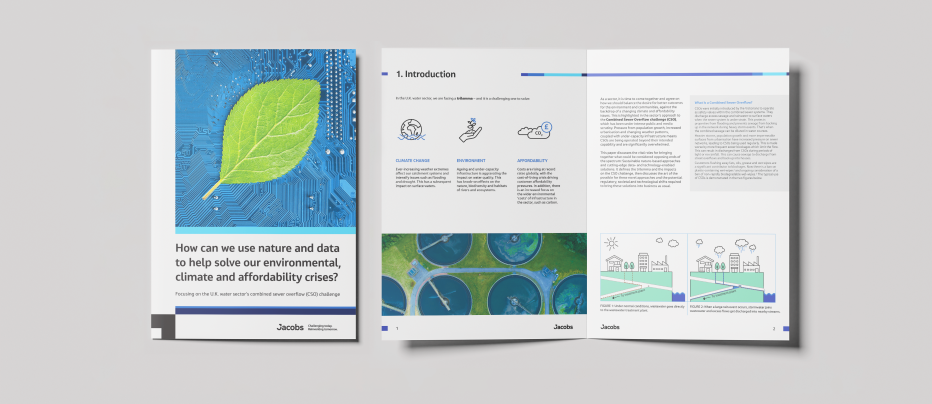
Solving our environmental, climate and affordability trilemma requires bringing together two factors that could be considered opposing ends of the spectrum: sustainable nature-based approaches and cutting-edge data- and technology-enabled solutions. This paper defines the trilemma and the impacts on the combined sewer overflows (CSOs) challenge, then discusses the art of the possible for these novel approaches and the potential regulatory, societal and technological shifts required to empower these solutions.
In this paper, we:
-
Outline the trilemma currently faced by the U.K. water sector.
-
Identify areas of change that can play a part in the solution, including funding opportunities, nature-based solutions and data- and technology-enabled solutions.
-
Discuss the benefits of nature-based solutions and data- and technology-enabled solutions in relation to CSOs.
The U.K. water sector is currently facing a trilemma, and it is a challenging one to solve:
-
Climate change
Ever-increasing weather extremes affect our catchment systems and intensify issues such as flooding and drought. This has a subsequent impact on our surface waters.
-
Environment
Aging and under-capacity infrastructure is aggravating the impact on water quality. This, in turn, has effects on the nature, biodiversity and habitats of our rivers and ecosystems.
-
Affordability
Costs are rising at record rates globally, with the cost-of-living crisis driving customer affordability pressures. In addition, there is an increased focus on the wider environmental ‘costs’ of infrastructure in the sector, such as carbon.
The water sector needs to collaborate on how to balance the desire for better outcomes for the environment and communities, against the backdrop of a challenging climate and affordability issues. There are demands to invest in combined sewer overflows to relieve the pressures from population growth, increased urbanization and changing water patterns.
In England, around 15,000 storm overflows are being operated beyond their intended capability and are significantly overwhelmed. If this is not addressed, it could lead to higher levels of sewer discharges which present two main types of harm: harm to public health and harm to the environment.
Can the 75% improvement required in CSOs by 2035 be delivered using a holistic, collaborative approach that provides the best value for society? Our short answer: Yes!
By combining the power of nature-based solutions with data-driven approaches, we can develop innovative and sustainable strategies to challenge traditional grey solutions. This paper identifies the benefits of using nature-based and data- and technology-enabled solutions to help overcome the CSOs challenge.
There is a consensus that there are no quick fixes and a suite of solutions is required. However, to successfully overcome the challenges faced by CSOs and adopt new approaches that are nature- or data-driven, we need to take a holistic view and a “systems-thinking” approach.
This paper explores the importance of nature and data in addressing the environmental, climate, and affordability issues associated with the Combined Sewer Overflows (CSOs) challenge in the U.K. water sector.
Meet the authors
Phil Higgins, Jacobs Head of Water - Europe
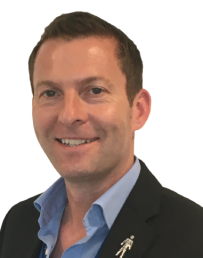
In his role as Jacobs’ Head of Water in Europe, Phil leads a team of approximately 500 people, providing a wide range of services from assurance and regulation through to engineering and delivery, and into operational support to multiple clients. With a doctorate in water engineering, Phil has experience across all aspects of engineering and technical leadership, as well as project and program management within the infrastructure sector. He has worked in senior roles both as a consultant and within client organizations. At Jacobs, Phil is focused on creating an environment where inclusive and diverse teams come together to solve clients’ challenges and create an inspiring place to work in.
Rebecca Haylock, Senior Project Manager, Water
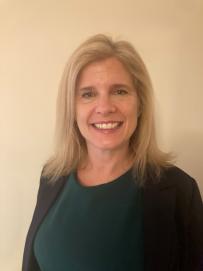
Rebecca has more than 22 years of technical and managerial experience in the water industry. She has successfully delivered a range of projects and programs of work, primarily within research and development and innovation. She has been a Research Manager at Thames Water, leading the company’s program of research into water reuse, water efficiency and smart metering. She also worked as an independent consultant to U.K. Water Industry Research, delivering leakage, networks and water quality projects. At Jacobs, Rebecca is responsible for delivering a wide range of projects for water companies, regulators and wider government bodies.
Gregg Kennedy, Jacobs Vice President of Data Solutions Product Suite – Water Platform
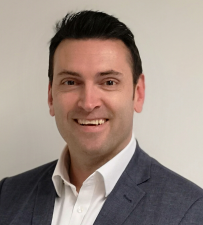
As a key thought leader in program and portfolio management, Gregg brings many years of experience working in the capital planning, delivery, reporting and governance areas of major utility providers and government agencies both in Australia and in the U.K. From a technical perspective, Gregg is a highly experienced finance and economics professional with skills spanning program and portfolio management, business and strategy planning, financial modeling, regulatory economics, capital investment appraisal, business case writing, cost-benefit analysis and benefits management. With an enduring passion for promoting the practice of benefits management, Gregg is a firm believer that all investment decisions should be ‘outcomes-focused’ so that every penny makes a significant and sustained contribution to securing benefits valued by stakeholders.
Phil Raynor, Jacobs Director of Operations – Water and Environment, Europe

Phil brings 21 years of working in the environmental and flood risk industry. With core training in the environmental sciences and extensive experience in a wide range of technical areas, Phil is heavily involved in both the delivery and technical assurance of major U.K. infrastructure projects, drawing on his broad experience base, attention to detail and strategic mindset to lead teams in the development of appropriate solutions.
You might also be interested in:
-
 News
NewsCombined Sewer Overflows in the UK: What Can We Learn from Other Countries?
In light of the U.K. Government’s plan to tackle combined sewer overflows, we explore how the issue is being addressed elsewhere and the role for innovative digital solutions.
-
 News
NewsFuture-proofing the Success of Water Utilities with Talent and Technology
Our Vice President of the Jacobs Data Solutions Product Suite – Water Platform, Gregg Kennedy, explains how Aqua DNA and all the Digital OneWater solutions are perfectly positioned to tackle the world’s greatest water challenges.
-
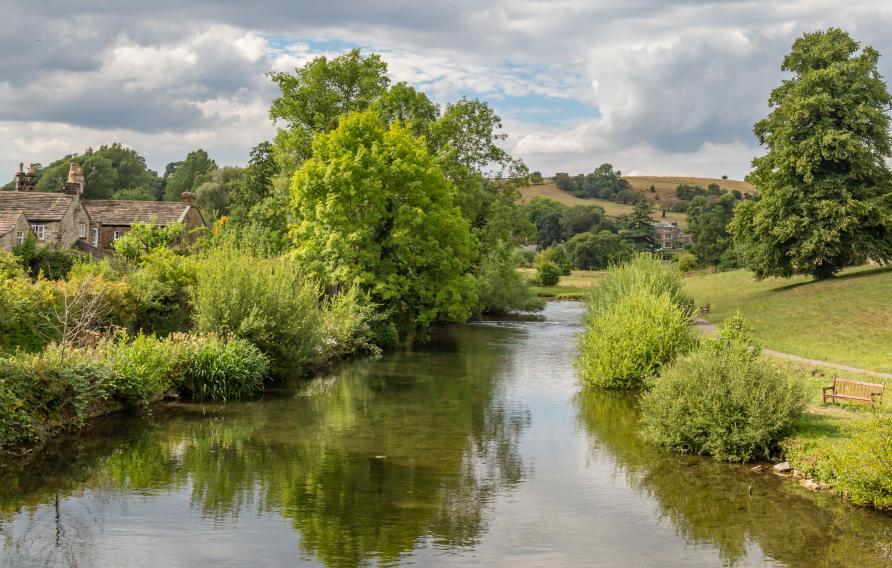 News
NewsCo-creating Sustainable Water Catchments
In a recent webinar series, we examined how a collaborative OneWater approach is being used to address catchment-scale water management challenges, such as flooding and droughts, in the U.K.
-
Showcase
Sidmouth Amphitheater: Flood defenses with a theatrical twist
A flood alleviation scheme to protect residents and properties in Sidmouth, U.K. from future flooding doubles up as an amphitheater for the local community.
-
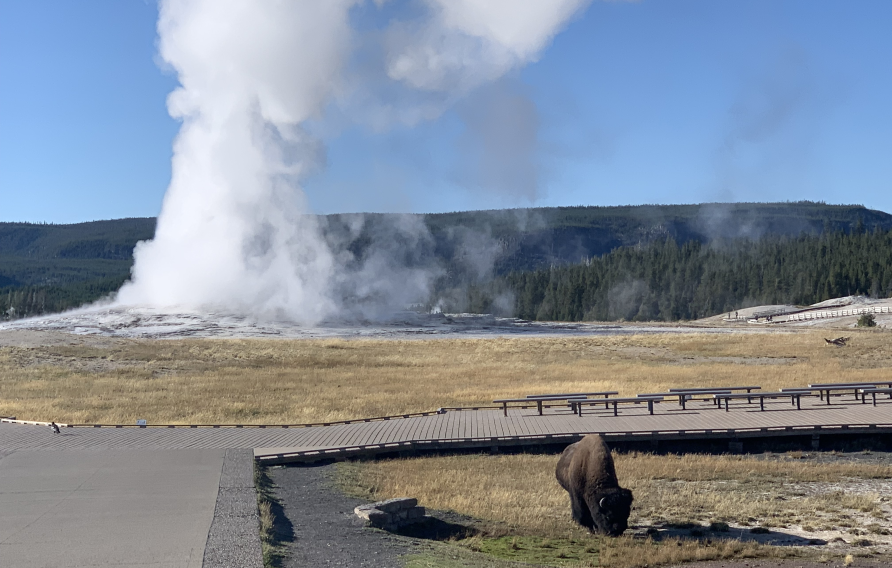 Showcase
ShowcaseJacobs and the National Park Service
Providing architectural and engineering services for our National Parks since 1971, Jacobs continues to protect, restore, rebuild and enhance America’s magnificent parks for the future.
-
 Solution
SolutionAqua DNA
Aqua DNA, an intelligent digital solution that collects live data and improves wastewater network performance using smart sensors and AI-powered predictive analytics to reduce risk and make a positive societal and environmental impact.
Future Foundations.
Co-creating the world to come

From developing climate resilience and transitioning to a low-carbon future, to modernizing and transforming infrastructure, governments and businesses face critical challenges. How they respond will define our future.
As our clients navigate these challenges, we help them think differently – working together to pioneer tomorrow's infrastructure solutions and build the foundations for a prosperous, secure future.














































